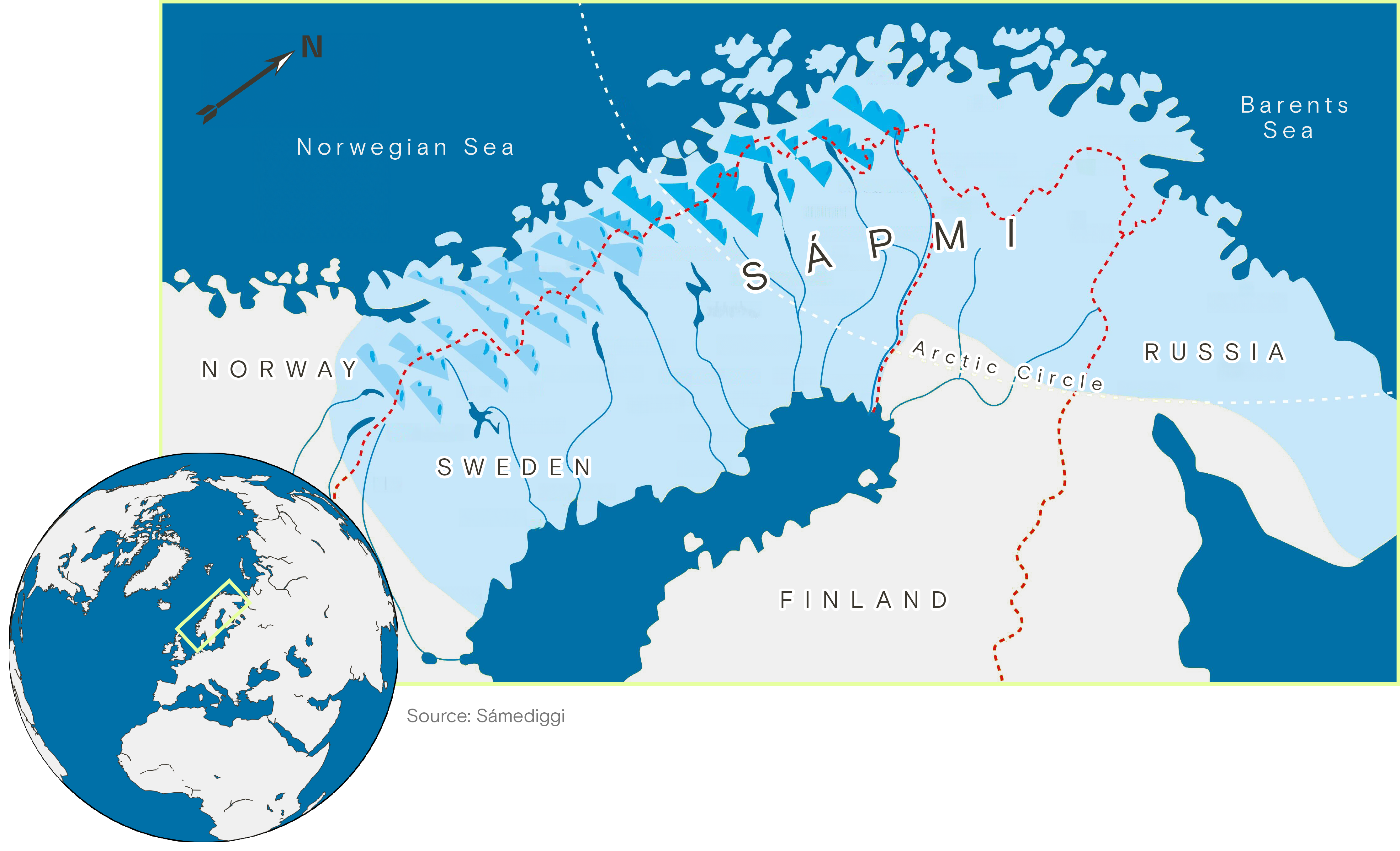A new report from Amnesty International says “green colonialism” — the appropriation of land and resources for environmental purposes — threatens indigenous Sámi culture in Sweden, Norway, and Finland. Written with the input of the Saami Council, a voluntary nongovernmental organization, the report highlights human rights violations connected to Sámi lands being treated like sacrifice zones for global climate goals and green financial interests.
“We see that states continue to promote the same types of industrial activities and exploitation of nature as before, but now under new labels and justifications,” said Saami Council President Per-Olof Nutti. “These processes are often extremely lengthy and complex, leaving the Sámi with little or no opportunity to influence our own future.”
Sámi homelands, known as Sápmi, stretch across northern Norway, Sweden, Finland, and Russia, and the report’s authors highlight that climate change threatens Sámi people in two ways: direct environmental impacts, and an increasing number of green energy projects and extractive industries needed for the green transition.

Grist / Clayton Aldern
The report focuses on three case studies in Norway, Sweden, and Finland. Because of the war in Ukraine, the authors said it was impossible to do research there. In Norway, the Fosen wind farm was greenlit in 2010 without Sámi consent and resulted in legal battles spanning years. In 2021, the country’s Supreme Court ruled that the wind farm was unconstitutional; however, turbines are still in operation because of a settlement last year. In Finland, exploration permits to build a mine in Sápmi have angered Sámi leaders, but the Sámi lack the legal mechanisms to protect the area. In Sweden, a nickel mine in Rönnbäcken, in reindeer-herding territory, was given exploration permits starting in 2005. The Sámi say the effort threatens the land essential to herding reindeer, and the long battle has exacerbated racism from non-Sámi locals in the area.
“There are many more,” said Elina Mikola, an Amnesty International researcher. “This development is really worrying, and it’s obvious that there will be more and more of these land-use conflicts in the near future.”
The report’s authors highlight that the Sámi, as Indigenous people, have collective rights that are enshrined in international treaties and law — specifically, the right to self-determination: the right of Indigenous peoples to freely determine their political status and futures through the exercise of free, prior, and informed consent, also known as FPIC. However, the report also reveals that Sweden, Finland, and Norway have failed to adequately implement FPIC and other international laws that would protect Sápmi from exploitation.
The report took three years to complete, partly, because of intersecting laws in different countries. Like many Indigenous communities, Sámi homelands don’t sit squarely within one state’s borders and can span multiple jurisdictions. Mikola said that the report wanted to focus on the Sámi and not individual countries. “It’s a bit of a de-colonial approach because we really wanted to treat the Sámi as all one nation, one area.”
In addition to including FPIC reform, the report recommends Finland, Sweden, and Norway review their regulations and implement laws that strengthen the protection of traditional livelihoods like reindeer herding. The authors also recommend that Sámi people be compensated for their time when consulting with companies and governments — a practice enshrined in international human rights law that would allow the Sámi to maintain cultural traditions.
Spokespersons from Finland, Norway, and Sweden did not respond to requests for comment by publication.
This story was originally published by Grist with the headline Sámi need better legal protections to save their homelands on Feb 4, 2025.
Indigenous territories are sacrificed for global climate goals. Global Indigenous Affairs Desk, International, Justice Grist





